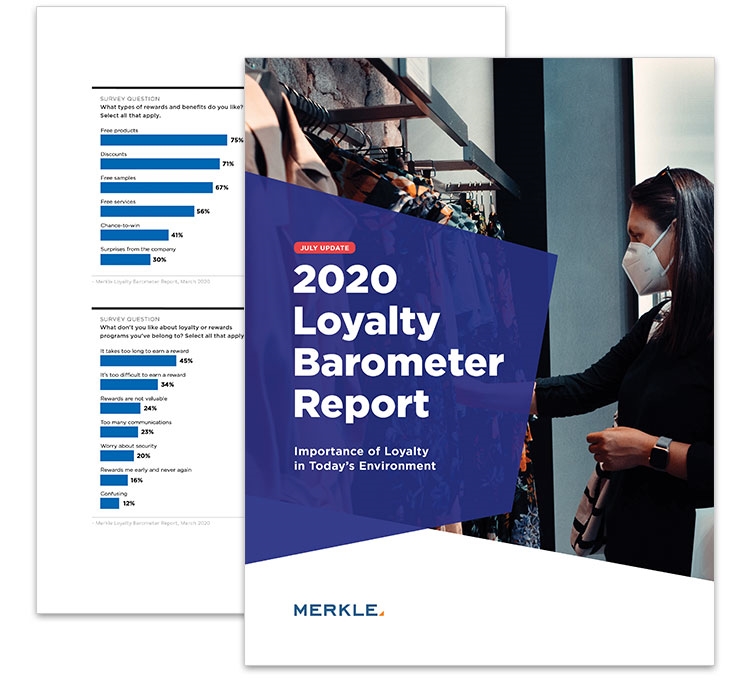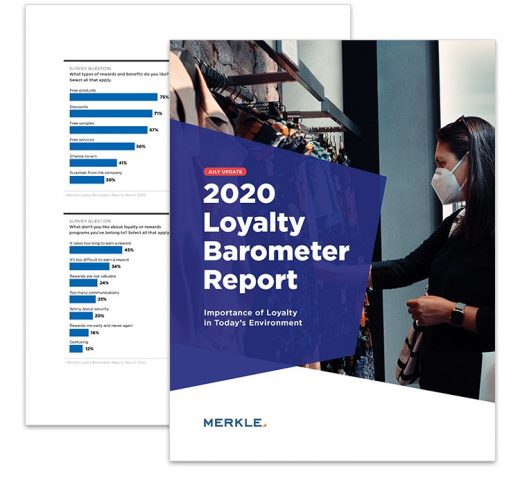Loyalty: Gen Z, Gen X, Millennial, Baby Boomer Habits Change As Pandemic Continues
Loyalty: Gen Z, Gen X, Millennial, Baby Boomer Habits Change As Pandemic Continues

While discounts, free samples, and offers continue to be the main drivers of loyalty programs, consumer perspectives on preferred ways to earn rewards have shifted slightly as a result of COVID-19.
That’s the main point from the data in the updated version of Merkle’s annual Loyalty Barometer Report. The updated version reveals the importance of loyalty as businesses re-emerge from the pandemic.
The report, initially released in March 2020, was updated in July and released Wednesday. For the update, Merkle surveyed more than 1,500 consumers who do not use the programs the agency manages for clients. Responses come from U.S. residents between the ages of 18 to 65. The data is segmented from baby boomers, Gen X, Millennials and Gen Y.
Earning points to spend on rewards continues to be the most appealing, but consumers currently have an increased desire for a program structure that provides clear financial savings, such as getting a $10 reward when they spend $100, and consistent discounts such as get a new reward every Tuesday.
The top dissatisfaction with loyalty programs is the time it takes to earn a reward. Some 35% of consumers would like to unlock additional features or use tools to find the right product, and 85% of consumers would like to select the benefits and rewards they receive.
About 59% of consumers indicate that the most important way a brand can interact with them is through surprise offers and gifts.
Baby Boomers are most interested in writing online reviews, taking surveys, or attending an event. They are less likely to engage in social media or download an app.
Millennials and Gen Z enjoy competition and achievement. Thirty-five percent want badges as a feature, and 27% want leaderboards as a feature.
Gen Z prefers community-focused program aspects. 22% want access to a community of like-minded people and 19% want to compete against other members.
When asked to cite the information survey participants are comfortable letting brands use to make their rewards experience more relevant, 52% cite purchase history, down from 59% in October 2019.
Browsing history on a brand’s website fell to 28% in July, down from 30% in October 2019.
In addition to purchase history, self-selected profile preferences also took a dip, with 36% of survey participants saying they are comfortable allowing brands to use the data to make the rewards experience better, compared with 42% in 2019.
(35)


